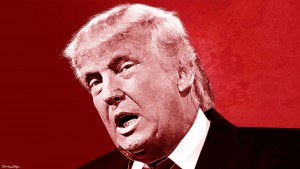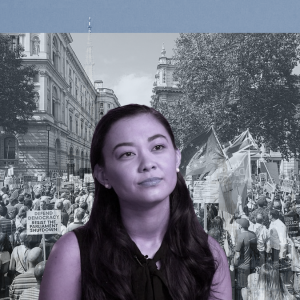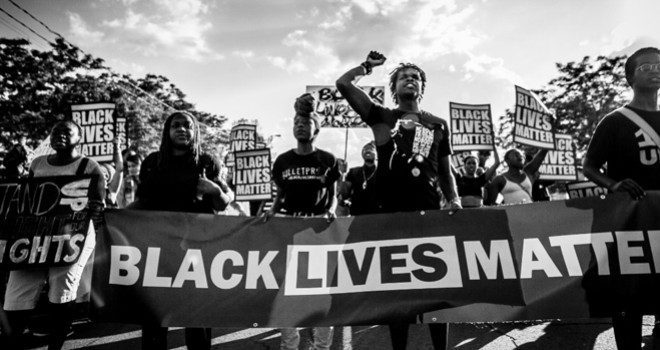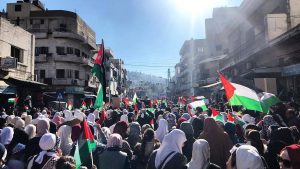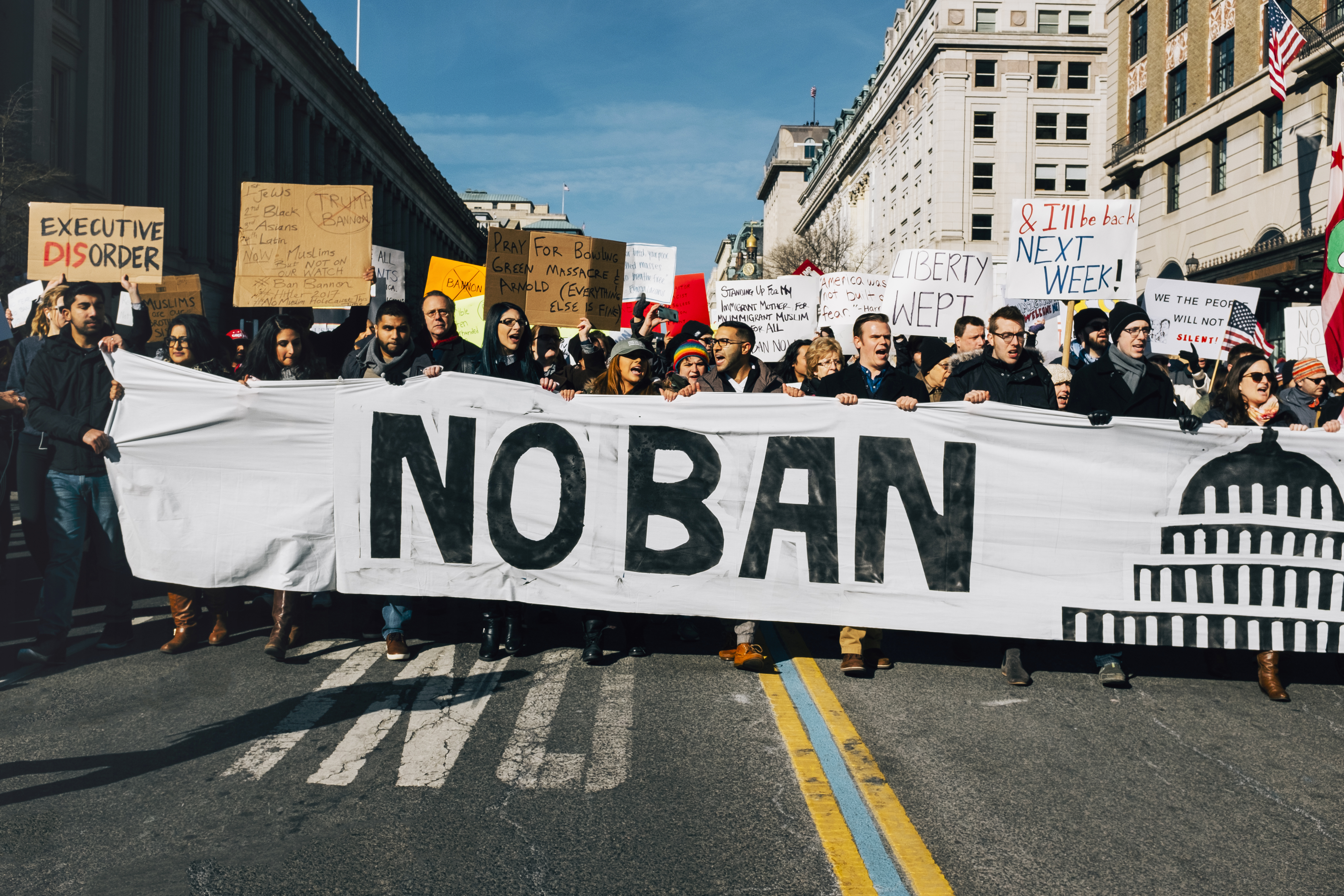
Feeding off Terror
by Shahryar Iravani | February 6, 2017
These have been a terrifying couple of weeks to be a Muslim. Passport holders from seven Muslim-majority countries were banned for ninety days from entering the US, the first major act of Trump’s new racial agenda; the ban has since been suspended by the American judiciary, having been brazenly unconstitutional. In Quebec last week, six Muslims were shot dead and eight were injured during evening prayers, in a Mosque that had just six months previously been defiled by racists who left a bloodied pig’s head on its front door. The USA, allied with Saudi Arabia, continued to bomb Yemen, with reports of severe civilian casualties, including children. The effects of the War on Terror, and the fear-mongering that helps fuel it, have made themselves openly and dreadfully apparent.
As a first generation Iranian migrant, and despite my British citizenship, I am affected by Trump’s Muslim ban. The choice to ban Iranians from entering the US is simultaneously peculiar and telling: no Iranian migrants or refugees, legal or illegal, have been responsible for terrorist attacks on US soil, which is supposedly what the blanket ban is designed to stop. The same goes for the other six banned countries. The nations from which the Boston bombers, those responsible for 9/11, or for the Orlando shootings, are oddly enough not included in the list of seven countries meriting having their entire citizenships banned from entering the US.
Six of the countries affected have experienced the full terror of American neo-imperialism, expansionism, and ‘liberation’. It feels like people from Muslim-majority countries are simply being punished for their racial backgrounds, with borders conveniently being closed on the victims of US foreign policy, most notably those displaced by the catastrophes in Iraq and Syria. This is an escalation of historic American strategy against Muslim immigration: Barack Obama restricted the visa rights of migrants from the same seven countries, but Trump’s action was an executive order, and affects any crossing of the border, regardless of visa, green card, or asylum status. Families have been separated, non-citizen residents (many of them refugees from their nations of birth) have been forced into a condition of statelessness, and there were cases of people dying before they passed the American border to get planned vital medical attention.
We are often told (usually by those wishing to sanitise the racism that infects white Western attitudes to Muslims) that because Islam is not a race itself, it cannot be racist to discriminate against Muslims. We are told that there is no such thing as Islamophobia, only justified criticism of Islam as an ideology. These criticisms fail to recognise that Muslims are racialised as non-white, scapegoated as complicit with crimes carried about by other Muslims, and made the victims of racial profiling regardless of their beliefs. It is why Sikhs, read to be Muslim, were victimised in racist attacks after 9/11. Violence against Muslims and those perceived to be Muslim is the logical extension of the politics of fear which Trump and May so ruthlessly deal in.
Because of Trump’s fear of “radical Islamic terror”, and regardless of the individual religious practice of different citizens, all those from the seven Muslim-majority countries subject to the new law have been met with an attempted ban. Banning people from entering a country because of their perceived ethnic and religious background hardly qualifies as intellectual criticism of Islam. Identity in a racist world is about legibility: how we are read to white people, if we are read as dissimilar, non-normative, ‘other’. Our marked difference, our abnormality, is apparently a source of overwhelming fear for ‘normal’ people. People become reduced to types, to races and religious groups, and thus become legible to the state and its various arms, beaten in the streets or stopped at borders.
Within discussions about Muslims in the UK and the US, we often speak about the failures of Muslims to properly ‘integrate’; we speak very little of the fear and alienation that accompanies the Muslim diasporic experience in the white world. How are we supposed to integrate if we are still seen as something different, separate, to be terrified of? Integration means ‘learning English’, linguistically, culturally, and nationalistically. It means taking off your veil, taking up as little space as possible at home, whilst staying silent in the face of the imperial project abroad, as America continues to drone bomb children. It means quietly ignoring government vans carrying billboards demanding of us to ‘go home’. It means facing continued existence in a hostile country because your own country has been reduced to a heap of rubble, and doing so with a smile, with an apology. It is exhausting. The freshly elected new world order, the white vote that brought it in, and its deathly fear of non-white people trying to make their lives in the white world, means we’re now knee-deep, wading in the fabled rivers of blood we feared half a century ago.
In a speech at the New College of Florida in 2010, feminist scholar bell hooks argued that “in fascist regimes, teaching populations to fear terrorism is one way the system garners support”: if the system is white America, the support it garners is through the reminder to white Americans that they are unsafe, that there is a particular demographic threat, and that it can easily be eliminated, by building walls and enforcing borders. The War on Terror is in itself an industry of terror. We feed off terror; it’s how you mobilise people to hatred and violence.
Playing with images of fear is the cornerstone of nationalism. Trump writes a new history with alternative facts, thus playing upon the American imagination, and the tendency of the imagination to make things appear bigger and scarier than they really are. This has been what the reality of being read as Muslim in a post-9/11 world looks has looked like since the towers fell. Fear reduces Muslims to apparitions, who need to be cast out for the safety of the preferred demographic. Psychologists have described “racial battle fatigue”, the mental exhaustion which accompanies existence as a racial alien in a white world, the distress and tiredness of daily life being a source of fear and horror to those around you. In Trump’s eyes, as an Iranian national, I am too much of a threat to enter the US. Being the cause of terror, funnily enough, is pretty terrifying in itself.
Photo: Masha George
